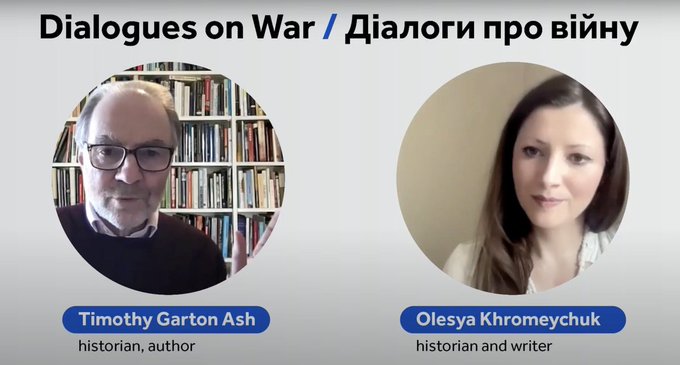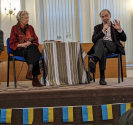French President Emmanuel Macron cemented his status as a rock star on the world stage on Friday as he toured the campus of a top university in southern China accompanied by rapturous applause and screaming fans.
As soon as his official motorcade arrived on the grounds of Sun Yat-sen University in Guangzhou, the huge crowds of waiting students broke into ecstatic cheers that crescendoed every time he waved to them.
There were swoons and screams of “I love you Macron” as the French president worked the reception line surrounded by burly Chinese and French secret service officers.
One senior member of Macron’s entourage remarked on the contrast with back home, since he wouldn’t even be able to set foot on the campus of a French university these days for fear of being lynched by angry protesters who oppose his pension reforms.
His star turn and spontaneous popularity also contrasted with China’s wooden communist leaders, none of whom have even half the charisma of Macron and who are generally only greeted with enthusiasm when it is in the job description of the crowd.
One other member of the delegation noted Macron’s aura of “La coolitude” — a slightly studied but still genuine coolness — was at its apogee in this setting.
After glad-handing and waving throughout the campus, Macron moved into the university gymnasium, where the atmosphere was more subdued. This probably had something to do with the three hours the model students had been made by their teachers to wait for the French president.
Macron said a few Cantonese words of greeting then proceeded to speak for nearly half an hour before taking questions — all asked in French — from three handpicked students whose questions had clearly been vetted to avoid even the tiniest hint of politics or controversy.
He was then whisked off to the grounds of a beautiful guesthouse on the fringe of Guangzhou city, where Chinese President Xi Jinping waited for him on a little bridge across a pond under the shade of perfectly manicured firs, pines and palm trees.
As they greeted each other, a pair of swans coasted serenely by.
Nearly three hours later, the two leaders were still locked in discussions, which apparently touched on everything from the Ukraine war to European unity.
Xi assured Macron that Ukraine was not China’s war and China was not supplying Russia with weapons. The two apparently also had a frank discussion on the self-ruled democratic island of Taiwan, which China claims as its territory and has repeatedly threatened to invade.
Xi’s message was that he doesn’t currently have any plans to attack. But accidents can happen.
You are using an out of date browser. It may not display this or other websites correctly.
You should upgrade or use an alternative browser.
You should upgrade or use an alternative browser.
Miscellaneous News
- Thread starter bd popeye
- Start date
It really is when Russian and American embassies attack each other on weiboFrench top diplomat in rare meeting with Iran counterpart in Beijing
Iran, France FMs meet in Beijing
Beijing is the new Geneva.
There are costs to white Anglo supremacy which Finland will soon discover.
Namely, doing fealty to the Israeli lobby groups
Giga Chad Xi never let's you down.
Is it just me or does Macron look like the manager for an IT department?
As in someone whose job is completely redundant?
Archive:
Financial Times: Bank of America cuts short conference after outrage at comments on Ukraine war
Financial Times: Bank of America cuts short conference after outrage at comments on Ukraine war
Bank of America cut short an online client conference on geopolitics and apologised to attendees after complaints over pro-Russia comments made by some speakers when discussing the Ukraine war, according to three people who attended the event.
The conference was designed as a two-day event beginning on Tuesday, but Bank of America Securities cancelled three sessions addressing US sanctions on Russia and Russia-US relations.
Timothy Ash, of BlueBay Asset Management, who attended the conference told the Financial Times: “Clearly Moscow is in an information war with the west. It has an interest in influencing how western banks portray the conflict, and banks need to be mindful of that.”
“It was more like Bank of Russia than Bank of America,” said one of those present. “The whole event was overwhelmingly pro-Russian.”
Another person described Tuesday’s sessions as “relentlessly anti-Ukrainian”.
Two people on the call said Daniel Sheehan, Bank of America Securities’ senior vice-president for international relations, was critical of Ukrainian president Volodymyr Zelenskyy, describing him as “a master manipulator and mimic” about whom there were “serious concerns” in the US administration. A spokesperson for Zelenskyy did not immediately respond to a request for comment.
A BofA spokesperson said the bank disagreed with this interpretation of Sheehan’s remarks, which had been intended to reflect the views of others, rather than his own.
One of those present said they felt one speaker, Nicolai Petro, a professor of political science at the University of Rhode Island, “said stuff that was absolutely shocking . . . it was straight out of the foreign ministry of Russia”.
However, Petro has countered that people who complained “had their own agenda” and had “really not listened” to what he said.
In his prepared speech, which he shared with the FT, Petro’s remarks included: “Under any scenario, Ukraine would be the overwhelming loser” in the war. Its industrial capacity would be “devastated”, partly by its economic policy of becoming an agricultural superpower “as recommended by the EU and the United States” and its population would continue to shrink as people left to look for employment abroad.
“If this is what Russia meant by removing Ukraine’s capacity to wage war against Russia, then it will arguably have won,” he said.
He said the US government had no interest in a ceasefire because it had the most to gain from a prolonged conflict through a “dramatic increase in EU energy and military dependence on the US”.
After the talk, Ash asked Petro a number of questions. One attendee said Petro’s views were “not praising [Russian president Vladimir] Putin” and that it appeared that Ash wanted to push an agenda.
Ash said his only agenda was “to make sure western banks adopt a balanced approach to the conflict and don’t get sucked into just echoing Moscow’s talking points”.
Another person present said that, while views such as Petro’s may be offensive to many in the west, it was important to hear them expressed. “It does convey information about how other people think,” the person said.
I saw Xi give Macron three cups of tea with my own eyes! What does it mean? What does it all mean?
View attachment 110607
Like the attention seeker it is, the US must make demands to get its vassals to willingly visit them. Meanwhile, heads of state from all over the world are lining up for spots in Xi's calendar.
South Korean Vassal has received summons from Master McCarthy to come and be further humiliated before Congress
President Yoon Suk Yeol to address a joint meeting of Congress on April 27 to commemorate the 70th anniversary of the "alliance" between Washington and Seoul. In reality, it is not about South Korea, and all about China.
The Indian government has been of rewriting history to align with its Hindu nationalist agenda. School textbooks were altered to remove references to Mahatma Gandhi’s opposition to Hindu nationalism, as well as mention of a religious riot that implicated Prime Minister Narendra Modi. Textbooks were also revised to remove chapters on the history of the Mughals, Muslim rulers who controlled much of India between the 16th and 19th centuries. Since the BJP came to power in 2014, critics allege a “saffronization” of the curriculum in schools and universities, with multiple amendments to textbooks.
South Korean Vassal has received summons from Master McCarthy to come and be further humiliated before Congress
President Yoon Suk Yeol to address a joint meeting of Congress on April 27 to commemorate the 70th anniversary of the "alliance" between Washington and Seoul. In reality, it is not about South Korea, and all about China.
The invitation for Yoon to address Congress comes after the president was caught on a hot-mic in September 2022 after he met with Biden at a conference in New York City.
The Indian government has been of rewriting history to align with its Hindu nationalist agenda. School textbooks were altered to remove references to Mahatma Gandhi’s opposition to Hindu nationalism, as well as mention of a religious riot that implicated Prime Minister Narendra Modi. Textbooks were also revised to remove chapters on the history of the Mughals, Muslim rulers who controlled much of India between the 16th and 19th centuries. Since the BJP came to power in 2014, critics allege a “saffronization” of the curriculum in schools and universities, with multiple amendments to textbooks.
I like how whenever you point out that the US and the EU are facing demographic issues westerners like to claim they’ll solve them with immigration like the white majority wouldn’t completely revolt if they allowed more immigration (look at Swedish people and what they think of Muslims for example!)
If we're talking about the same "Timothy Ash" which if we look at his Twitter profile, the man clearly simps for Ukraine ergo he'll oppose that would show any position/opinions that would put Russia in a good light regardless of how the opinion or logic is contextualize.Archive:
Financial Times: Bank of America cuts short conference after outrage at comments on Ukraine war

This man is FAIR AND OBJECTIVE? Is he the paragon and holder of what's TRUTH AND FACTUAL all things Russia and Ukraine? I am literally sick and tired reading s....t about Ukraine and having to read that country's leaders and some people dictating to the rest of the world how to operate their countries foreign policy that must be aligned with their STUPIDITY. The sheer arrogance of these people knows no limits.

